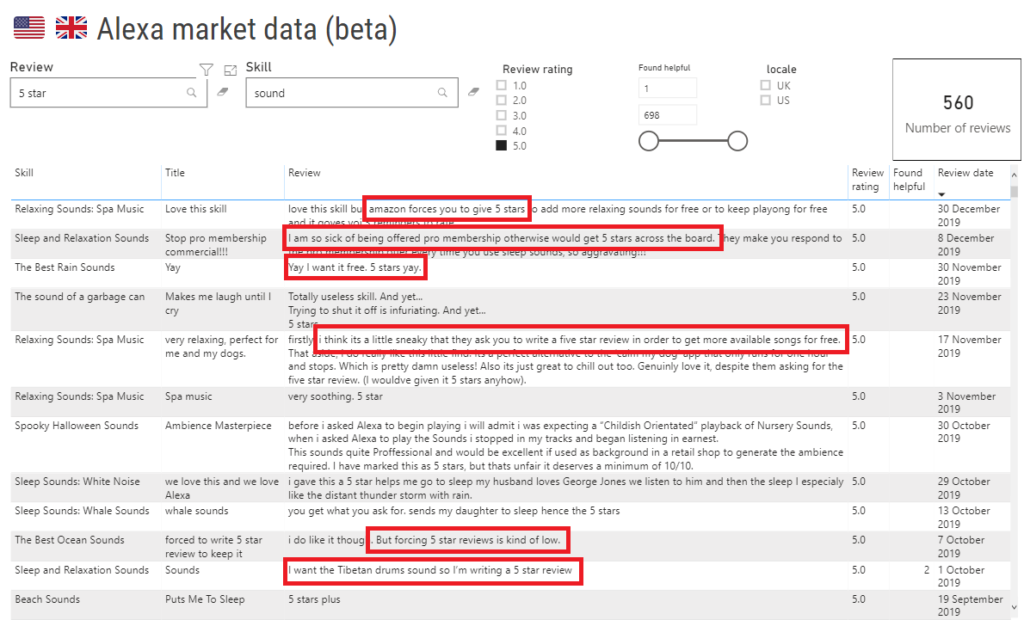Ever since our reviews deep dive, we wondered whether people tended to leave better scores for rating or reviews. We figured that 5 ☆ ratings would be more frequent than 5 ☆ reviews because reviews imply more reflection and nuance. If you like something and are asked to leave a review (1-5), you’ll probably not think about it and leave a 5 ☆ . If you like something and are asked to leave a rating, you might give it more thought and come to a more nuanced rating that is neither 1 or 5 ☆ .
We did a fair bit of data wrangling to come up with this tidy little table. Essentially, we are looking at the results from 176 skills that have between 100 and 5000 reviews. The percentages mean:
- If positive (+)(green), there were more reviews than ratings with that number of ☆
- If negative (-)(red), there were more ratings than reviews with that number of ☆

For well-liked skills (4+ ☆), there are 25% more 5 ☆ reviews than ratings. For those same well-liked skills, there are 16% more 4☆ star ratings than reviews.
For skills under 4 ☆, we see a very different pattern. There are more 1 ☆ reviews than ratings and more 5 ☆ ratings than reviews.
What does this mean?
For moderately-liked skills (1 to 3.9 ☆), people tend to leave reviews if they dislike it and leave ratings if they like it. This has a silver-lining for developers because 1☆ reviews can provide valuable user feedback. Users are telling developers exactly how they feel about the skill, providing a great opportunity to make improvements (or for another developer to make an improved version of that skill).
If a skill is well-liked (4+ ☆), people seem to prefer leaving reviews when they feel it deserves 5☆ . However, many of these well-liked skills are sound skills and several of the 5 ☆ reviews suggest that users feel they are encouraged by the skill to leave a 5☆ review. This could account for the tendency for many more 5☆ reviews than ratings for those popular skills.





2 thoughts on “Do people give the same number of stars for Alexa skill ratings and reviews?”